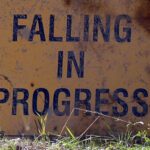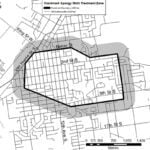Home »

Constitutional crisis, or crisis of democracy?
Letter to the Editor
The rhetoric around the stalled Kinder Morgan TransMountain Pipeline expansion has generated some dangerous politics that undermine Canadian cohesion and democratic dissent.
Alberta Premier Rachel Notley has been repeating the line that B.C. has run Canada into a constitutional crisis. Others, such as former Encana CEO Gwyn Morgan, speaking on BNN, have suggested that it is time to “enforce the law,” implying state force should discipline protesters and some politicians. A rising chorus of pro-pipeline voices reminds us of jobs to be gained. The governments of Alberta and Canada are now talking about pouring taxpayer money into corporate pipeline infrastructure in order to keep Kinder Morgan committed to TransMountain. That won’t, however, resolve the opposition in B.C. because Alberta and Canada cannot buy their way to “yes.”
Prime Minister Justin Trudeau has spoken to B.C. Premier John Horgan and told him, effectively, to close his eyes and think of Canada – to get out of the way of TransMountain’s expansion. Premier Horgan has not banned the pipeline nor has he incited civil disobedience to its construction, but his government does oppose it and B.C. wishes to seek a judicial decision as to whether the province has the constitutional jurisdiction to regulate what flows through trans-provincial infrastructure in the province.
But this amounts to politics in a democracy, not a constitutional crisis.
To be sure, there are irreconcilable interests here. Protesters of the pipeline have serious concerns about public and environmental safety and about the integrity of the regulatory framework governing production and transportation of bitumen. A good number of Indigenous communities point out that the consultation process has not consulted with them as required by the Supreme Court, nor has it obtained their “free, prior and informed consent” to developments affecting their territories as required by the United Nations Declaration on the Rights of Indigenous Peoples.
The B.C. NDP government can only survive with the support of the BC Greens, and approving the pipeline would cost them that. The Alberta NDP needs to fight an election soon against Jason Kenney’s United Conservatives. In order to win, Rachel Notley must demonstrate that the NDP can defend Alberta’s energy economy, which desperately needs a pipeline to tidewater. Justin Trudeau campaigned on an environmental platform which balanced a carbon tax with a commitment to build pipelines. He also campaigned on creating the conditions for reconciliation with Indigenous peoples. He won’t get reconciliation by ramming through a pipeline against Indigenous opposition – that process is simply the same old colonialism Trudeau professes to abhor.
The Canadian constitution is not a single piece of legislation, but several, along with chunks of international law, unwritten conventions, and England’s Privy Council and Canada’s Supreme Court decisions. According to the Constitution Act of 1867, the sovereignty of Canada is divided constitutionally between the federal and provincial governments. The 1867 constitution lists most of their jurisdictions in sections 91 and 92. Over time, new jurisdictions have been identified and allocated by the Supreme Court. There are also some shared jurisdictions. Following the 1982 Constitution, there is recognition that the Canadian state must accommodate measures of Indigenous self-determination. The Supreme Court has recognized in Tsilqot’in that Indigenous title pre-empts colonial claims to particular territories. Thus, there is also constitutional space for Indigenous governments with their own sources of sovereignty and areas of jurisdiction.
Federal systems are characterized by this division of power. Canada is perhaps the most decentralized federation in the world, which means that the provinces have significant constitutional power and the federal government cannot simply dictate its policy preferences without running into some constitutional challenges.
However, the federal government has a couple of special constitutional cards up its sleeve. It can declare the War Measures Act to enforce its will. It has “declaratory” power which can be invoked in the national interest. This is the power that Prime Minister Trudeau proposes to invoke. It is also able to take virtually any action to secure the “peace, order and good government” of Canada – the POGG powers. The Supreme Court is tasked with reviewing the legitimacy of such endeavours. That is how our constitution and the rule of law function. But there are political costs to exercising these powers, paid in the coin of a loss of democratic legitimacy.
The current “crisis” is not a constitutional one, but rather one of democracy. Democratic crises are difficult because citizens don’t speak with one voice. These crises involve dissent and struggle among competing interests with different degrees of political power. Civil disobedience by citizens has a long and laudatory history of challenging oppressive governments and social conditions. How these matters are resolved defines the health of our democracy.
Democracy is a perpetual conversation in which all may participate, and all must be taken into account. It cannot be reduced to simply facilitating economic interests, and is not simply “majority rule.”
Crushing dissent also crushes democracy (see for example Putin and Russia; Assad and Syria; el-Sisi and Egypt).
Canada is a constitutional democracy, operating through a federal structure in which the three orders of government – federal, provincial, and Indigenous – have jurisdictional sovereignty, constitutionally established and upheld by the rule of law. Importantly, our governments operate within the parameters of democracy, with the support of citizens. “The economy” is not the fundamental reason for a democratic state, but is simply one of its tools.
What the policy wonks call “social licence” – which is really consultation with and support by citizens – is the democratic process applied to particular circumstances. In B.C., particularly on the Lower Mainland, the number of citizens opposing this pipeline is so large that any government over-riding the public runs a serious risk of losing its democratic credibility. Indigenous opposition is similarly a test of Canada’s democratic chops, as well as of its real commitment to Indigenous rights and reconciliation.
If our governments can’t respect democratic processes, popular dissent, and Indigenous non-consent, they are unable to defend an essential Canadian ideal: our democracy. Without democracy, the constitution is hollow. The heavy hand of the state may ram Kinder Morgan and other projects through by invoking the declaratory power. That would fray the bonds of citizenship that bring us together in Project Canada. Infrastructure projects are not worth that price.
Joyce A. Green,
Professor, Department of Politics and International Studies
University of Regina,
Regina, Saskatchewan and Cranbrook







